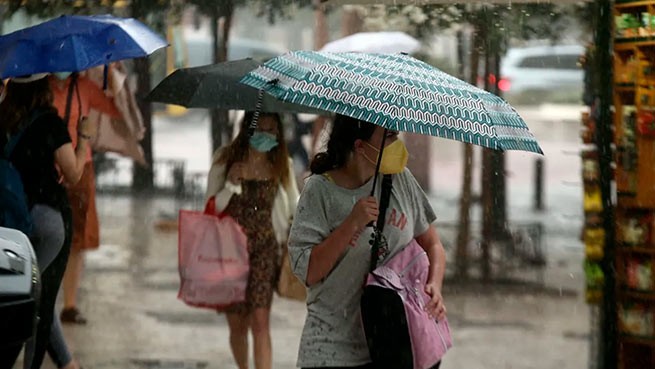The ever-worsening climate change is starting to have a knock-on effect on our taste buds and the taste of food.
Over the years, many relevant studies have been conducted. Scientists from one of them warned back in 2015 that “heat and drought are likely to reduce the quality of grains, grapes, vegetables, fruits and other agricultural crops.” Almost nine years later, we are at this point. The taste and even the texture of food as we know it have begun to change due to the climate crisis.
As temperatures change and seasons change, the growth and ripening processes of fruits change.
Yields of many crops have already declined due to rising diseases, increasingly harsh weather conditions, or shorter flowering periods as the weather often seems to go “crazy.” In some areas, this has a significant impact on the production of lemons, beets, potatoes, lentils and chickpeas. Experts warn that carrots are losing some of their texture and flavor. Cabbage may become more bitter. Eggplants may well become “unrecognizable.” Meat and seafood also cannot help but remain “intact.” They are affected by heat stress. The situation can be extremely dangerous for raising pigs and chickens.
Meanwhile, rising ocean temperatures threaten the decline of some species of cephalopods, such as octopuses, or even the extinction of other species.
In addition to increasing production rates, global warming now affects the taste and texture of food. Raquel Pico sums up the warning signs in an interesting article for the Spanish site Ethic. For example, for French cheese producers, the impact of climate change on their production is already a serious problem. Among the most important culinary products of France, cheeses in many types and flavors are closely associated with their places of origin.
But what happens when climate conditions change in the areas where agricultural land is located? The question is by no means rhetorical, but existential, concerning the problem of the survival of enterprises, the preservation of the “true” taste and quality of products for many farmers and producers. They even fear that the conditions required to legitimize the “designation of origin” (D.O.O.) of cheeses, for example, will be lost. And this is no longer considered absurd at all.
This is exactly what the producers of the famous Picadon cheese think, which is made from goat’s milk mainly in the Drôme department, in southeastern France, and the unique product gets its unique taste and intense aroma from the grass and shrubs growing in this area (natural food for cattle) .
The entire food production system was based on an agricultural cycle linked to climatic conditions. But now the situation is changing dramatically. And if the goats are not fed the same way, their milk will change. Just like the taste of cheese…
Of course, it’s not just French cheeses that are at risk. Even the taste of apples is changing, according to a recent study by the National Food and Agricultural Research Organization of Japan. Note differences in taste and texture. They now become less hard and sour, with more watery flesh. But the list doesn’t end there.

As the average temperature on Earth increased and climate conditions changed, grapes began to ripen earlier. The result is wines with higher alcohol content due to the increased sugar levels. This affects not only quality. And just as this happens with cheeses, so it does with wines. Not only the designation of origin associated with the grape varieties is at risk, but also the taste of the product.
What separates French Bordeaux from California Cabernet is flavor, “and a lot of that has to do with climate,” explains researcher Gabriela Petrick. Meanwhile, due to climate change, grape growing is spreading to areas where it was previously off the production map, such as England.
On the world market coffee there are also ups and downs. Entire regions known for growing certain types of coffee are under threat. Moreover, experts warn that by 2050, half of them will stop bearing fruit.
Many coffee varieties are endangered: 60% of wild species are threatened with extinction.
The coffee industry is now experimenting with old and new varieties, methods and combinations that are more resilient to new climate conditions. But with time The aroma and taste of the world’s favorite drink will change dramatically.
This is to be expected, say researchers from Tufts University and Montana State University, since even the height of coffee crops is changing. This is a trick by growers to avoid rising temperatures, which, however, affects the amount of sunlight the plants receive.
Even taste of beer is under threat. As summers become longer, drier and hotter, hop crops are impacted. Its production is declining and prices are rising. So the beer becomes less bitter in the glass, and the average person’s pocket is emptier.







More Stories
UK: human trial of melanoma vaccine started
ProNews: The government is methodically destroying the healthcare system in order to transfer it to the private sector
May Day strikes throughout Greece, operating hours of public transport are limited to the maximum (additions are being added)